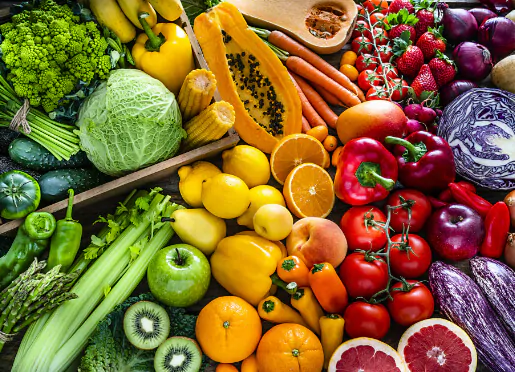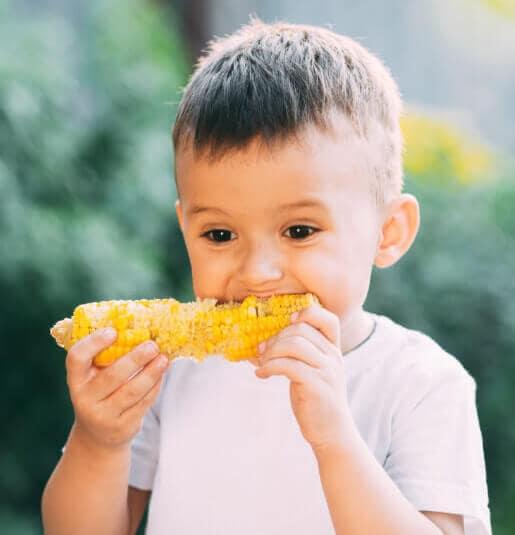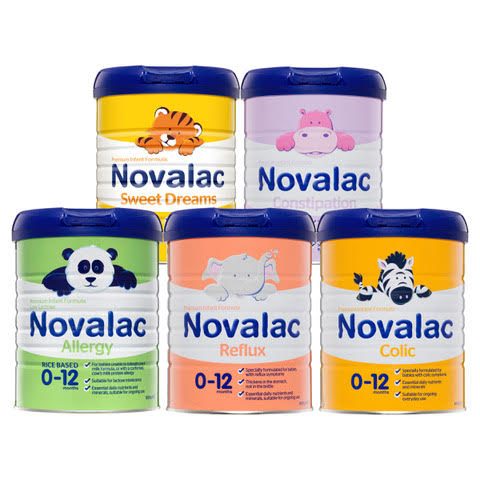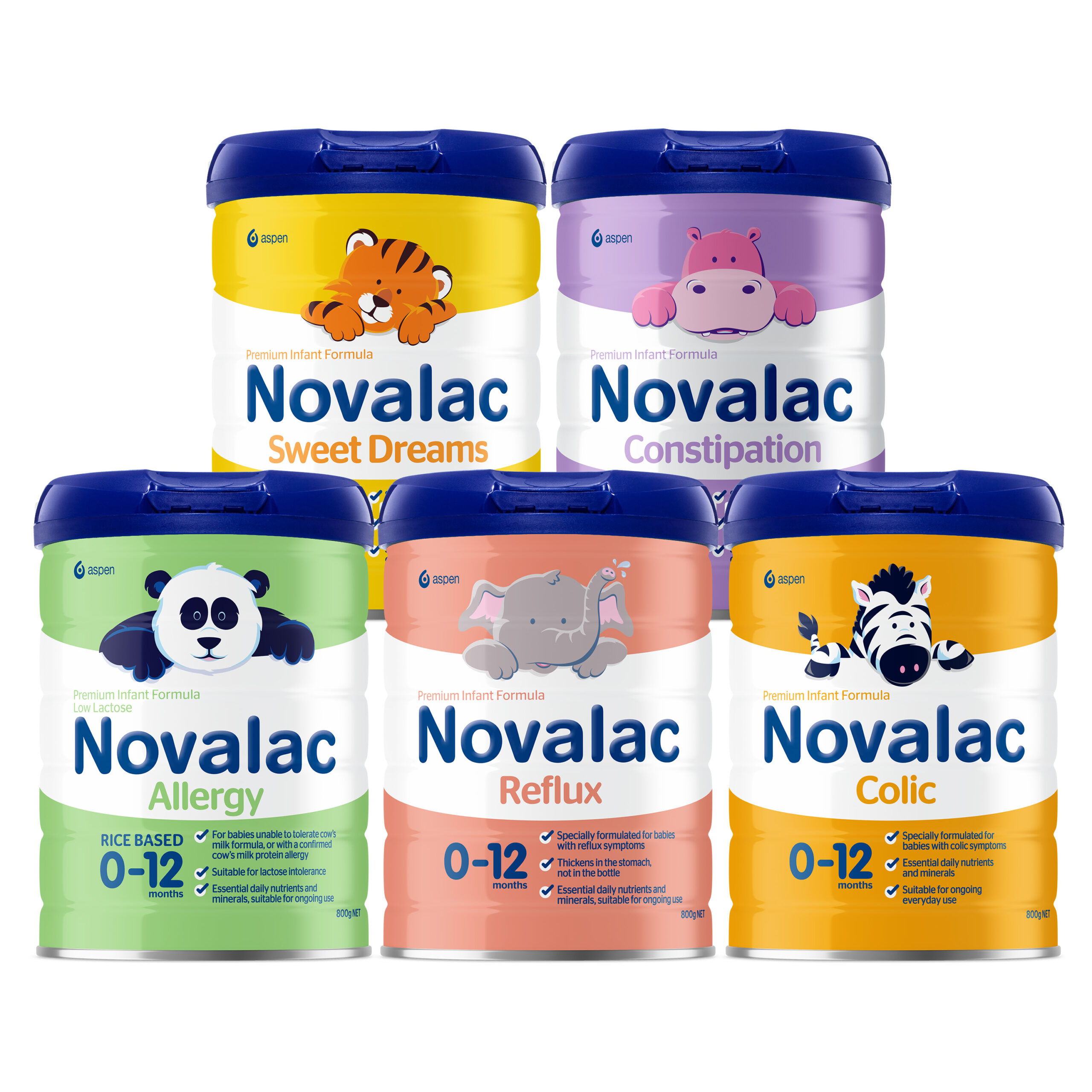Nutrition for your toddler
It’s easy to see why good nutrition is important when you consider how much energy they have and how quickly they grow!
Relative to their size and weight, young children have high energy and nutrient requirements! They also have smaller stomachs, so it helps to meet their nutritional needs by offering a regular meal pattern of 3 small meals, plus 2–3 planned ‘between-meal’ snacks.1,2Offering meals and snacks at regular times also encourages a better appetite at mealtimes.

What counts as good nutrition?
- When planning nutritious meals for your toddler, choose things from these main 5 food groups every day:3,4
- Vegetables of different types and colours, legumes and beans
- Fruits
- Grain foods, such as whole breads, cereals, rice, pasta, noodles, polenta, couscous, oats and quinoa
- Lean meats and poultry, fish, eggs, tofu, nuts and seeds
- Milk, yoghurt, cheese and/or their alternatives
It’s also important to make sure your toddler’s diet is healthy in other ways:3,5
! Avoid giving them overly processed foods with added sugar, salt and saturated fat
! Ensure they’re getting sufficient water/fluids throughout the day

Try to give your toddler fruit, vegetables and grain foods most of the time, and moderate amounts of the other food groups.4

Essential nutrients include6:
Vitamins including vitamin A for healthy eyesight and immune function, vitamins B6 and B12 to help release energy from food, vitamin C to support immune system function and vitamin D which helps the body absorb calcium to keep bones strong and healthy.
Eating a range of foods from the 5 food groups including eggs, vegetables and fruits of different colours, wholemeal cereals and yeast extract helps your toddlers get the vitamins they need.
Minerals such as calcium and iron which are important for the brain and blood, zinc to help with wound healing and immune function, and other essential minerals like phosphorus and magnesium.
Minerals are found in a range of foods including meat, chicken, seafood, tofu, dairy, wholegrain cereals, fortified breakfast cereal, seeds and dried beans.
Set good eating habits early
Healthy eating is one of the many factors that has an impact on your child’s wellbeing and development. By starting early, while your toddler is starting out on their journey of discovery with food, you can help set up healthy eating habits for life.
Healthy food not only ensures your toddler gets the nutrients to grow and develop, it also helps develop their sense of taste. Opening up their world to new and interesting flavours can create an enjoyable future where they are willing to try different foods and experience new tastes. Your toddler learns from you, so the best way for them to develop good eating habits is for them to see you prepare, eat and enjoy healthy food too.
Healthy eating tip:
Keeping a bowl of fresh fruit within easy view and reach means there’s always a healthy snack at hand.
Do fussy eaters get the nutrients they need?
Being fussy is part of being a toddler and can be worrying for parents when it gets in the way of good nutrition. Food can be something they like to have control over, but it’s also normal for your child’s appetite to change from one day to the next. Eating only a little one day usually means making up for it the next, so try not to worry. The important thing is to offer food choices that are healthy, rather than resorting to unhealthy snacks.3
If a wide range of healthy foods are rejected by your toddler, it could mean they’re not getting the nutrition they need in their diet. There are strategies you can try if you feel your fussy eater isn’t getting these nutrients.

Always talk to your doctor, pharmacist or health worker for advice on any feeding issues your child is experiencing.
References:
- Cowbrough K. J Fam Health Care 2010; 20(2):49¬–52.
- Fact Sheet: Healthy eating and play for toddlers (1–2 years). RCH. Available at https://www.education.vic.gov.au/ Accessed April 2020.
- Eat For Health, Australian Dietary Guidelines, Australian Government National Health and Medical Research Council Department of Health and Ageing, 2013.
- Getting the best start in life: All about childhood nutrition. Dietitians Assoc. Aust. Available at: https://daa.asn.au/. Accessed June 2020.
- Fact Sheet: Healthy Eating 0–5 years. MCRI. Available at: https://www.mcri.edu.au/ Accessed November 2019.
- Vitamins and Minerals (suitable for 1 – 18 years). Raising children network. Available at: https://raisingchildren.net.au/ Accessed 2 June 2020.
- Australian Bureau of Statistics. National Health Survey: First Results, 2017-2018. Available at: https://www.abs.gov.au/. Accessed April 2020.

EVERY CHILD IS DIFFERENT
Every child's development and needs are different, especially when it comes to conditions that may impact on their everyday feeding habits. We are here to support you.




